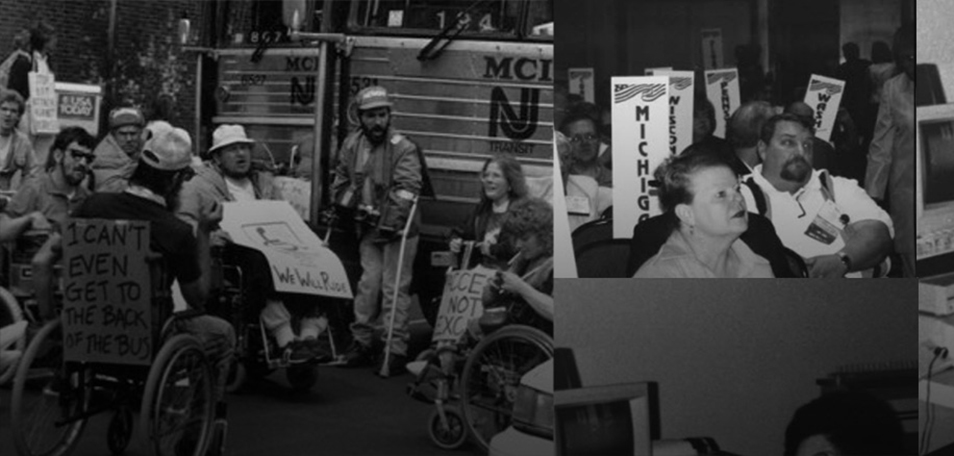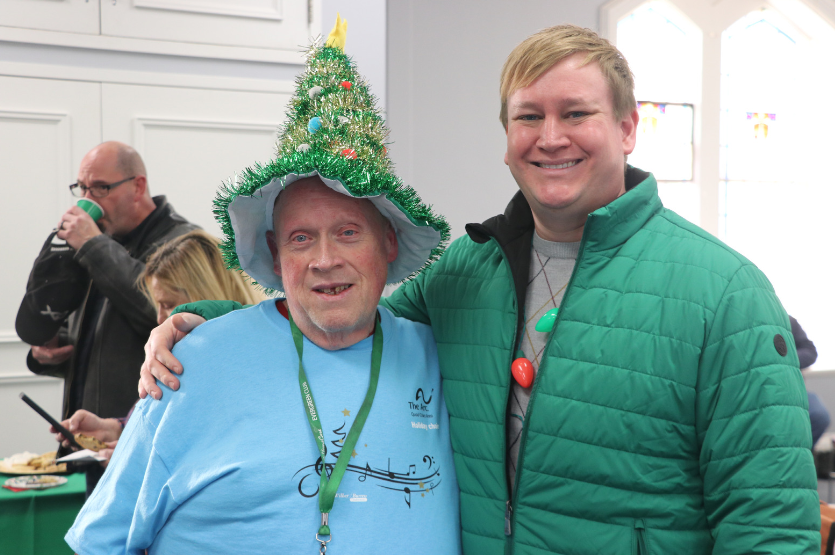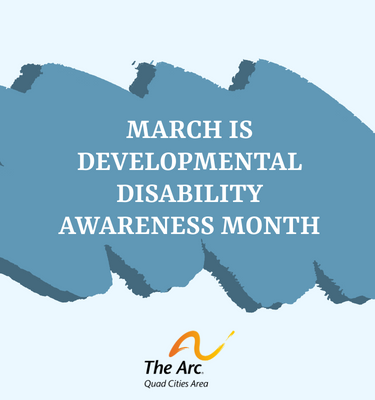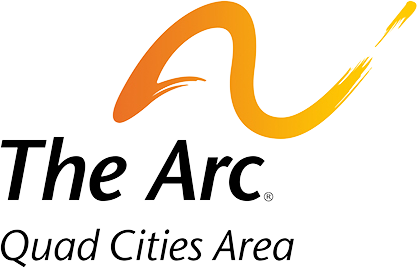Overview
What Is The Arc?
The Arc of the Quad Cities Area is a non-profit provider of services for individuals with intellectual and developmental disabilities including Down syndrome, autism, Fetal Alcohol Disorders, cerebral palsy, and other diagnoses for families in the Quad Cities Area. The Arc has 350 professional and dedicated staff members offering a wide range of services for 325 people served, 24 hours per day, 365 days per week. The Arc’s services are accredited by CARF, an international accreditor of service providers.
What Does The Arc Stand For?
Throughout its history, The Arc’s name has gone through many changes.
When referring to us, The Arc is not an acronym. Use The Arc, not The ARC and never ARC. The Arc should be considered as a title or a phrase.
Who Should I Contact for Press Inquiries?
Sarah Wright – Chief Development and Strategy Officer CDO
309.786.6474 | wrights@arcqca.org
What’s The Arc’s Position On…?
The Arc’s position statements address critical issues related to human and civil rights, health care, and services and programs for adults with I/DD and their families.
The Power of Words: People First Language
People with disabilities are first and foremost people who have individual abilities, interests, and needs. They are moms, dads, sons, daughters, sisters, brothers, friends, neighbors, coworkers, and students. They are a part of the community.
About 54 million Americans — one out of every five individuals — have a disability. People with disabilities constitute our nation’s largest minority group, which is simultaneously the most inclusive and the most diverse. Everyone is represented: all genders, all ages, all religions, all socioeconomic levels and all ethnic backgrounds. The disability community is the only minority group that anyone can join at any time.
Words are powerful. The language a society uses to refer to persons with disabilities shapes its beliefs and ideas about them. Old, inaccurate, and inappropriate descriptors perpetuate negative stereotypes and attitudinal barriers. In contrast, using thoughtful terminology can foster positive attitudes about persons with disabilities.
What is People First Language? People First Language emphasizes the person, not the disability. By placing the person first, the disability is no longer the primary, defining characteristic of an individual, but one of several aspects of the whole person. It eliminates generalizations and stereotypes, by focusing on the person rather than the disability. All it takes is flipping the order of your words – so instead of disabled person, you refer to the person as a person with a disability.
Some people prefer identity-first language. You should always respect how a person wants to refer to themselves if they communicate a preference.
Our words and the meanings we attach to them create attitudes, drive social policies and laws, influence our feelings and decisions, and affect people’s daily lives. How we use them makes a difference, and at The Arc, we advocate for respect.
Representation in the Media
Historically, people with disabilities have been regarded as individuals to be pitied, feared, or ignored. They have been portrayed as helpless victims, repulsive adversaries, heroic individuals overcoming tragedy, and charity cases who must depend on others for their well-being and care. Media coverage frequently focused on heartwarming features and inspirational stories that reinforced stereotypes, patronized, and underestimated individuals’ capabilities.
In recent years, disability activism and improved understanding in the public and the media of disability issues have altered public awareness and knowledge, eliminating the worst stereotypes and misrepresentations. Still, old attitudes, experiences, and stereotypes die hard.
People with disabilities continue to seek accurate portrayals that present a respectful, positive view of individuals as active participants of society, included in the classroom, the workplace, and in all aspects of the community. Additionally, people with disabilities are focusing attention on tough issues that affect quality of life, such as accessible transportation, housing, affordable health care, employment opportunities, and discrimination.
Press Room
Resources
Find videos, fact sheets, publications, and more on a variety of topics.









